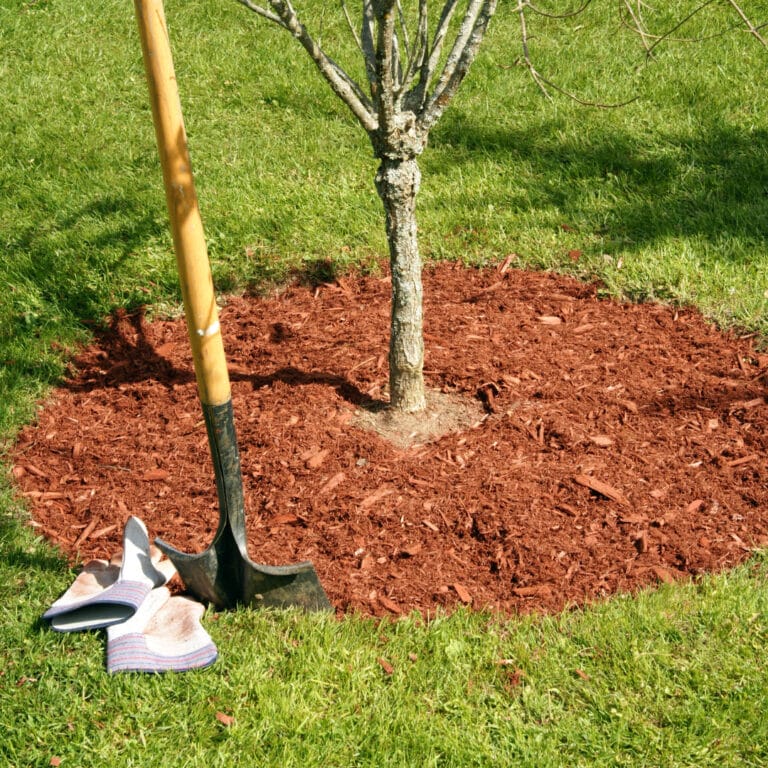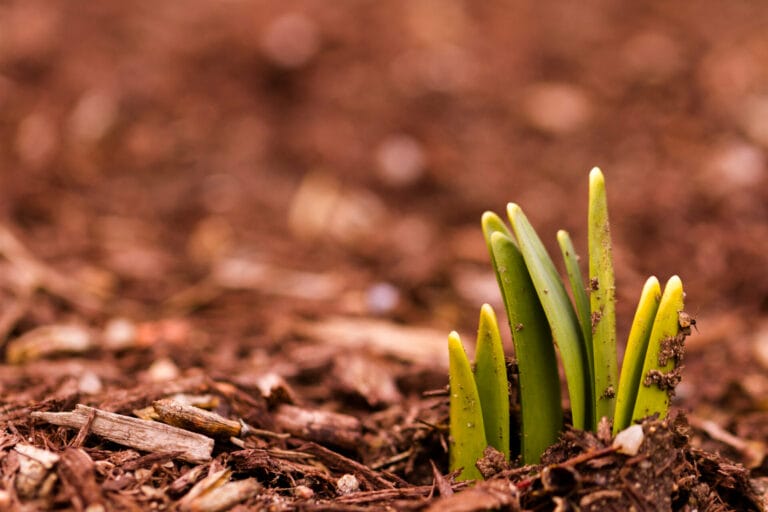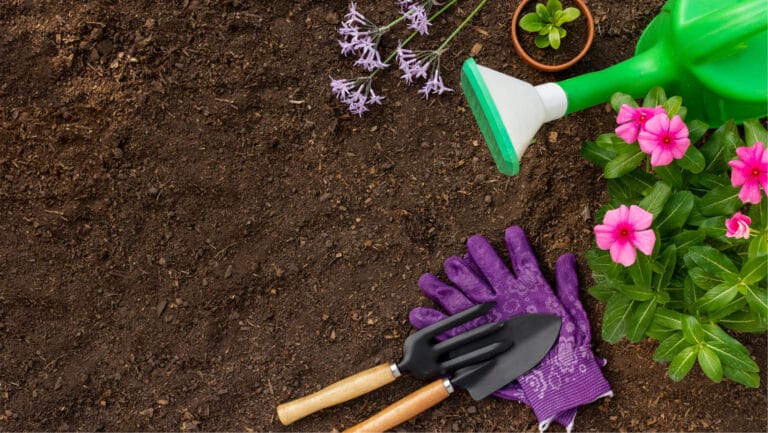In the realm of gardening, one simple yet highly effective practice stands out as a game-changer: mulching. Mulch, often underestimated, plays a pivotal role in nurturing flourishing gardens while simultaneously reducing maintenance efforts. From enhancing soil health to conserving moisture and curbing weed growth, the benefits of mulch are boundless. Let’s delve into the fascinating world of mulching and uncover how this humble garden staple can transform your gardening experience.

Understanding Mulch:
Mulch serves as a protective layer covering the soil’s surface, composed of various materials such as organic matter (like shredded leaves, grass clippings, wood chips, or compost) or inorganic materials (such as gravel or pebbles). Its primary purpose is to provide a plethora of benefits to both plants and the soil they grow in.
Enhancing Soil Health:
At the heart of every thriving garden lies healthy soil, and mulch plays a crucial role in maintaining soil vitality. As mulch breaks down over time, it enriches the soil with essential nutrients, thereby fostering robust plant growth. Additionally, mulch aids in regulating soil temperature, shielding it from extreme heat or cold, which is particularly beneficial for delicate plant roots.
Moisture Conservation:
One of the most significant advantages of mulch is its ability to retain soil moisture. By acting as a barrier between the soil and the sun, mulch minimizes water evaporation, ensuring that moisture remains available to plants for more extended periods. This is especially advantageous during hot summer months or in regions prone to drought, where water conservation is paramount for sustaining healthy gardens.

Weed Suppression:
Bid farewell to tedious weeding sessions with the assistance of mulch. By forming a dense layer over the soil, mulch suppresses weed growth by inhibiting sunlight penetration, which weeds require for germination and growth. This natural weed barrier reduces the competition for nutrients and space, allowing your prized plants to thrive without the constant threat of weed encroachment.
Soil Erosion Prevention:
For gardens situated on slopes or prone to erosion, mulch serves as a protective shield against soil erosion. Its cohesive nature helps anchor soil particles in place, preventing them from being washed away by rain or blown away by strong winds. This erosion control not only preserves the integrity of your garden beds but also safeguards nearby water bodies from sediment runoff.
Pest and Disease Management:
Mulch acts as a deterrent against pests and diseases that may afflict your garden plants. Certain types of mulch, such as cedar or cypress, possess natural repellent properties that deter insects, thus reducing the likelihood of pest infestations. Moreover, by preventing soil splashing onto plant foliage during heavy rainfall, mulch helps mitigate the spread of soil-borne diseases, ensuring healthier plants overall.

Aesthetic Appeal:
Beyond its functional benefits, mulch contributes to the visual appeal of your garden, imparting a polished and cohesive look to your outdoor space. With a wide array of mulch options available, ranging from vibrant-colored wood chips to finely textured compost, you can tailor the aesthetic of your garden to suit your preferences, creating a picturesque landscape that delights the senses.
Environmental Sustainability:
Embracing mulching practices aligns with principles of environmental sustainability by promoting resource conservation and reducing waste. Organic mulch materials, such as yard waste or tree trimmings, can be sourced locally or generated from your own garden, minimizing the need for synthetic fertilizers or chemical-laden alternatives. This eco-friendly approach not only benefits your garden but also contributes to the broader goal of preserving our planet’s precious resources.
Practical Application Tips:
To reap the full benefits of mulch in your garden, it’s essential to apply it correctly:
Choose the Right Type: Select mulch materials based on your garden’s specific needs, considering factors such as soil type, climate, and aesthetic preferences.
Apply Adequate Thickness: Aim for a layer of mulch that is 2-4 inches thick to provide optimal coverage and effectiveness.
Avoid Direct Contact: Keep mulch several inches away from plant stems and trunks to prevent moisture-related issues and discourage pests.
Regular Maintenance: Periodically replenish mulch layers to compensate for decomposition and ensure consistent coverage throughout the growing season.

In conclusion, mulch stands as an indispensable ally in the journey towards cultivating vibrant and resilient gardens. By harnessing its multifaceted benefits, gardeners can nurture healthier plants, conserve resources, and create visually stunning landscapes that are as sustainable as they are beautiful. So, embrace the power of mulch and watch your garden flourish like never before.

